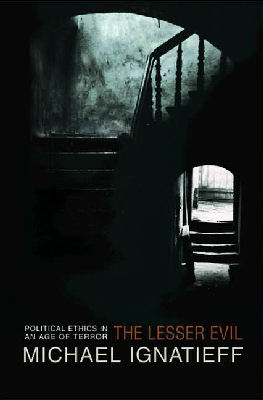
|
Posted January 11, 2007
Book: The Lesser Evil: Political ethics in an age of terror Author: Michael Ignatieff Princeton University Press. Princeton, NY. 2006. Pp. 212 An excerpt from the jacket:
Ignatieff argues that we must not shrink from the use of violence that far from understanding liberal democracy, force can be necessary for its survival. But its use must be measured, not a program of torture or revenge. And we must not fool ourselves that whatever we do in the name of freedom and democracy is good. We may need to kill to fight the greater evil of terrorism, but we must never pretend that doing so is anything better than a lesser evil. An excerpt from the book: Terrorism is a violent form of politics, and it is because terrorism is political that it is dangerous. Terrorists represent causes and grievances and claim to speak in the name of millions. If terrorism is a form of politics, it needs to be fought with the force of argument and not just with the force of arms. A war on terror that is not guided by a clear political strategy, to win support for democratic government and drain support from terror, is bound to fail. Indeed, it is a mistake to evaluate the effectiveness of military or police actions apart from their political impact. An operation that crushes a cell but alienates an entire population of innocent bystanders is not a success. It is a failure. Its obvious that the tactics of a war on terror need to be focused by a long-term political strategy. But what strategy exactly? The answer depends on the kind of terrorism a state is facing and the types of demands that terrorists make. In this chapter, I want to distinguish among forms of terrorism, identify the political claims terrorists use to justify violence against civilians, and propose political strategies to defeat them. Six types of terrorism each requiring its own political response need to be identified insurrectionary terrorism aimed at revolutionary overthrow of a state. loner or issue terrorism aimed at promotion of a single cause liberation terrorism aimed at the overthrow of a colonial regime separatist terrorism aimed at the independence for a subordinate ethnic or religious group within the state occupation terrorim aimed at driving an occupying force from territory acquired through war or conquest global terrorism aimed not at the liberation of a particular group, but at inflicting damage and humiliation on a global power Table of Contents: 1. Democracy and the lesser evil 2. The ethics of emergency 3. The weakness of the strong 4. The strength of the weak 5. The temptations of nihilism 6. Liberty and Armageddon |
|
